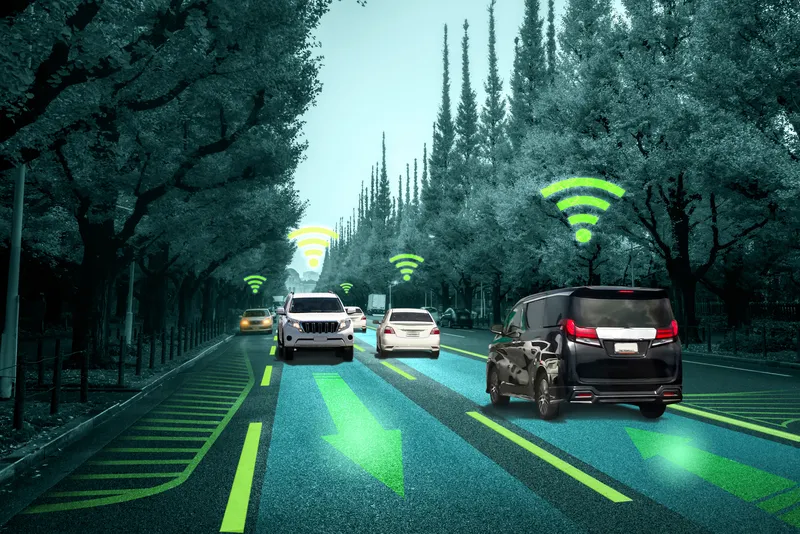A start-up has demonstrated an electric driverless delivery vehicle at the CAV Scotland show which it says reduces the last mile delivery costs by up to 90%.
Academy of Robotics says Kar-go uses artificial intelligence to deliver small parcels in conjunction with an app at 1.2p per mile. The vehicle’s operating system allows it to travel on unmarked country roads and navigate safely without access to GPS, the company adds.
Recipients can call for their package to be delivered to their location on a street, by a restaurant or outside their office while also tracking Kar-go’s progress.
Kar-go features a patented management system including storage compartments for different orders. Customers can unlock the vehicle’s hatch after presenting a token on their mobile phone. The system is expected to release the specific item only, preventing further access to other parcels. As the vehicle moves on, the system re-orders its packages ready for the next delivery.
It was developed in collaboration with the UK’s Driver and Vehicle Licensing Agency and can travel at around 60mph. It can operate 24 hours a day, seven days a week.
The first working model of Kar-go was manufactured in partnership with car manufacturer Pilgrim Motorsports. Academy has opened a further investment round to raise funds for the production and testing of these vehicles.
CAV Scotland is managed by Transport Network on behalf of










